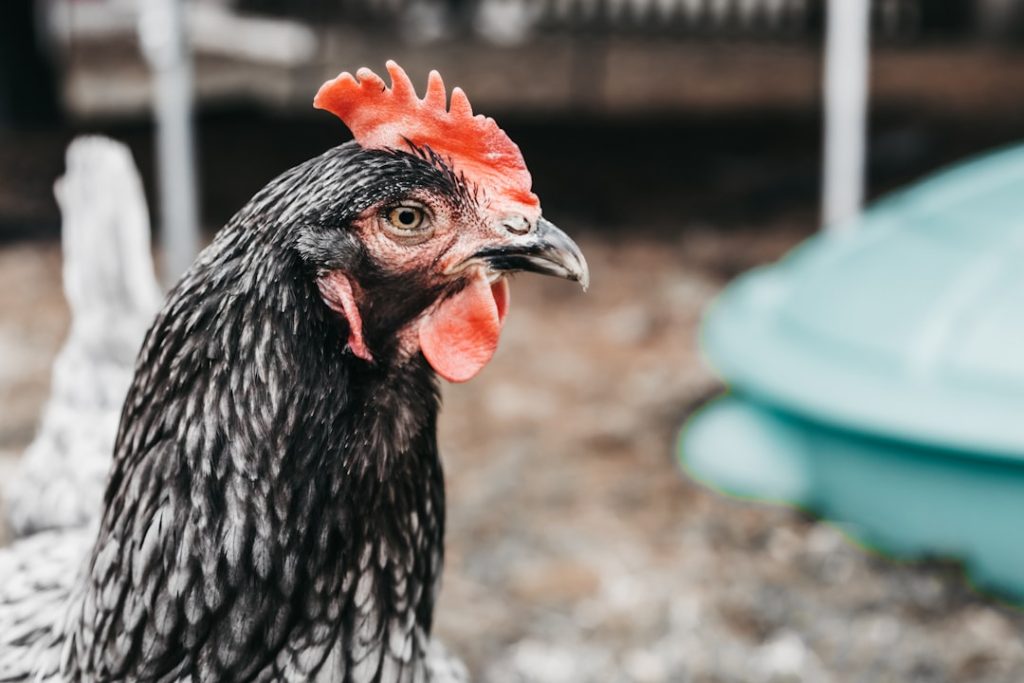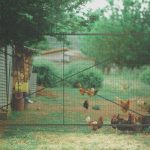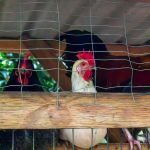Chickens are complex creatures with intricate social structures and behaviors that are essential to comprehend for successful poultry husbandry. These birds are inherently social and flourish in flock settings. Within each flock, a hierarchical system known as the pecking order exists, determining access to resources such as food, nesting locations, and mating opportunities.
Recognizing this social structure is vital for maintaining flock harmony. As prey animals, chickens possess a naturally cautious demeanor and are easily startled. They exhibit strong instincts for foraging, ground scratching, and dust bathing.
Chickens demonstrate considerable intelligence and can form strong attachments to their human caretakers. They utilize a variety of vocalizations to communicate both with each other and with humans. Chickens have an innate tendency to roost at night, preferring elevated perches for sleeping.
This behavior necessitates the inclusion of roosting bars in coop designs. Additionally, hens have a strong instinct to lay eggs in secure, secluded locations, making the provision of nesting boxes crucial for egg-laying operations. Understanding these natural behaviors is fundamental in creating an enriching, low-stress environment for chickens.
It enables poultry keepers to design coops and management practices that accommodate the birds’ innate needs and instincts, thereby promoting the overall health and well-being of the flock.
Table of Contents
- 1 Building a Secure Chicken Coop
- 2 Providing Adequate Food and Water
- 3 Creating an Engaging Environment
- 4 Using Deterrents and Barriers
- 5 Supervising Free Range Time
- 6 Communicating with Neighbors
- 7 FAQs
- 7.1 What are some effective ways to keep chickens from going to the neighbor’s house?
- 7.2 Why is it important to keep chickens from going to the neighbor’s house?
- 7.3 What are the potential consequences of chickens going to the neighbor’s house?
- 7.4 How can I train my chickens to stay within their designated area?
- 7.5 Are there any natural deterrents that can help keep chickens from going to the neighbor’s house?
Key Takeaways
- Chickens are social animals and have a pecking order within their flock.
- A secure chicken coop should have strong fencing, predator-proof locks, and proper ventilation.
- Chickens need a balanced diet of grains, greens, and protein, along with access to clean water.
- An engaging environment for chickens includes perches, nesting boxes, and space to roam.
- Deterrents and barriers such as motion-activated lights and predator-proof fencing can help protect chickens from harm.
Building a Secure Chicken Coop
Designing a Coop: Key Considerations
When designing a coop, it’s essential to consider the size of the flock, the climate, and the local predators. The coop should be spacious enough to allow for natural behaviors such as scratching, dust bathing, and perching.
Protection from the Elements and Predators
The coop should provide protection from extreme weather conditions, such as heat, cold, and rain. Additionally, it should be predator-proof, with sturdy walls, a secure roof, and hardware cloth on all openings to prevent entry by predators such as raccoons, foxes, and birds of prey.
A Well-Designed Coop for Happy and Healthy Chickens
The layout of the coop should include roosting bars for the chickens to perch on at night, nesting boxes for egg-laying hens, and easy access for cleaning and egg collection. The coop should also have good ventilation to prevent the buildup of ammonia from chicken droppings and to maintain good air quality. By using high-quality materials that are durable and easy to clean, such as pressure-treated wood or metal siding, chicken owners can provide their flock with a safe and comfortable living space that meets their natural instincts and protects them from harm.
Providing Adequate Food and Water
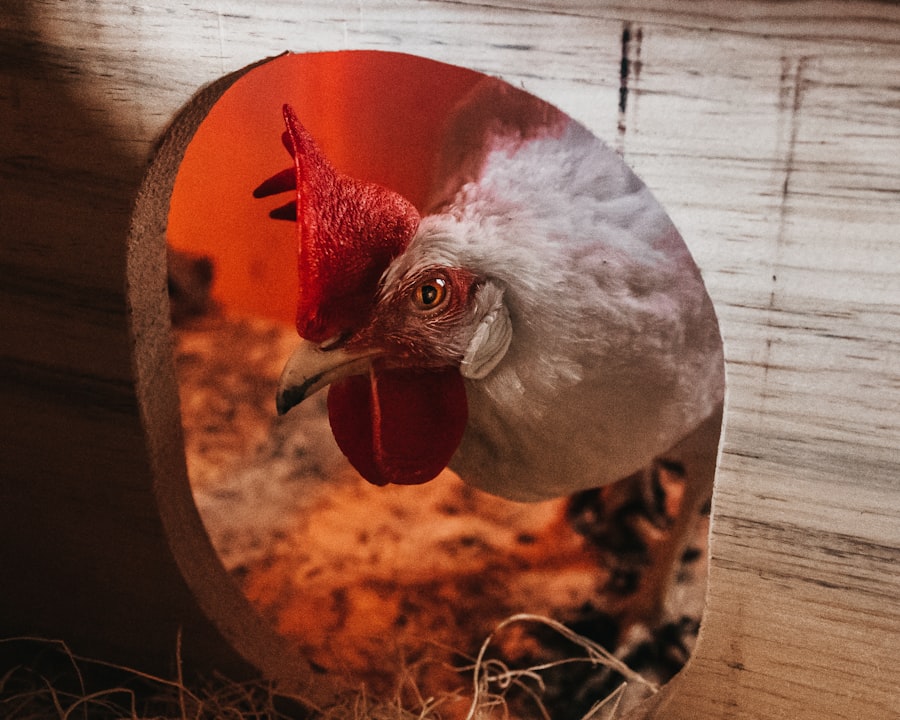
Providing adequate food and water is essential for the health and well-being of chickens. Chickens require a balanced diet that includes a mix of grains, protein, vitamins, and minerals. A commercial feed formulated for chickens is a convenient option that provides all the essential nutrients they need.
In addition to feed, chickens also enjoy foraging for insects, seeds, and greens, so providing access to a pasture or outdoor area can help supplement their diet and keep them engaged. It’s important to provide fresh water at all times, as chickens can quickly become dehydrated, especially in hot weather. In addition to feed and water, chickens also benefit from the occasional treat such as fruits, vegetables, or mealworms.
These treats can be used as a form of enrichment and can help build trust between chickens and their caretakers. It’s important to monitor the food and water supply regularly to ensure that it is clean and free from contaminants. By providing a balanced diet and access to fresh water, chicken owners can ensure the health and vitality of their flock.
Creating an Engaging Environment
Creating an engaging environment for chickens is important for their mental and physical well-being. Chickens are naturally curious and active animals that enjoy exploring their surroundings and engaging in natural behaviors such as scratching, dust bathing, and foraging. Providing access to an outdoor area or pasture can give chickens the opportunity to roam, peck at the ground, and hunt for insects.
This not only provides exercise but also helps satisfy their natural instincts. In addition to outdoor space, providing enrichment activities such as hanging treats or toys can help keep chickens entertained and stimulated. For example, hanging a head of cabbage or a suet feeder can provide hours of entertainment as chickens peck at the treat.
Providing perches or platforms at different heights can also encourage natural behaviors such as roosting and jumping. By creating an engaging environment that allows chickens to exhibit their natural behaviors, chicken owners can promote physical activity and mental stimulation for their flock.
Using Deterrents and Barriers
Using deterrents and barriers is an important aspect of protecting chickens from predators and other potential threats. Predators such as raccoons, foxes, and birds of prey are common threats to chickens, so it’s important to take measures to deter them from entering the coop or run. This can include installing hardware cloth around the perimeter of the coop and run to prevent digging or climbing by predators.
Motion-activated lights or sound devices can also be effective at deterring nocturnal predators. In addition to physical barriers, using natural deterrents such as predator urine or predator decoys can help keep predators at bay. It’s also important to secure food sources such as feeders and garbage cans to prevent attracting unwanted pests.
By using a combination of deterrents and barriers, chicken owners can create a safe and secure environment for their flock.
Supervising Free Range Time
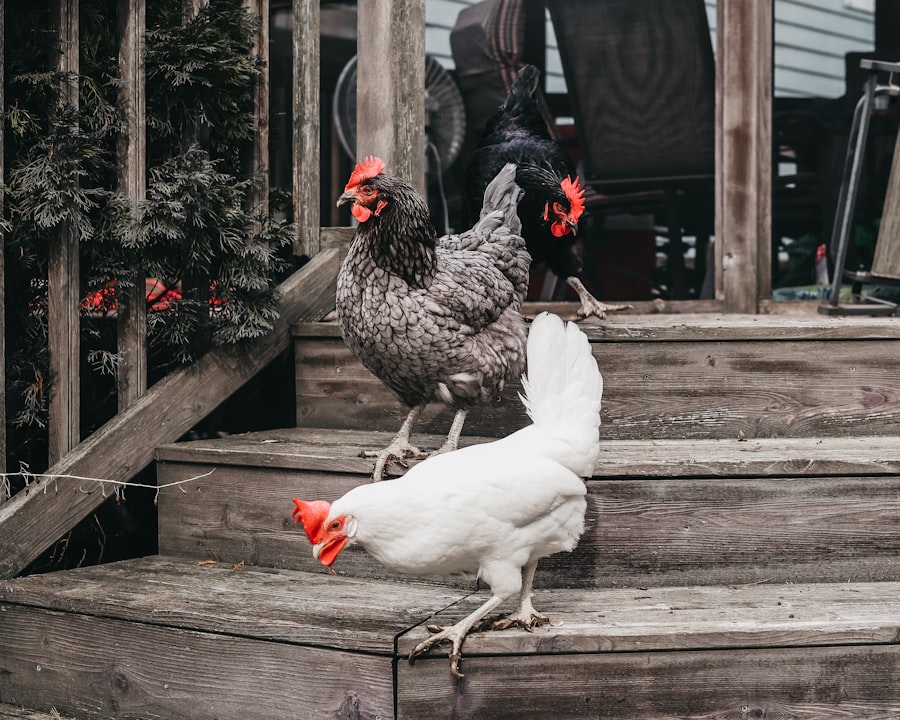
Preventing Dangers and Damage
However, it’s essential to supervise free range time to prevent chickens from wandering into dangerous areas or becoming vulnerable to predators. Unsupervised chickens can easily fall prey to predators or get injured by venturing into hazardous zones.
Protecting Gardens and Neighboring Properties
Supervision can also help prevent chickens from causing damage to gardens or neighboring properties. By keeping an eye on the flock during free range time, chicken owners can ensure that their birds are safe and well-behaved while enjoying the benefits of free-ranging.
Ensuring a Safe and Enjoyable Experience
By supervising free range time, chicken owners can create a safe and enjoyable experience for their birds. This approach allows chickens to engage in natural behaviors while minimizing the risks associated with free-ranging.
Communicating with Neighbors
Communicating with neighbors is important when raising chickens, especially if you live in a residential area or close to other properties. It’s important to be considerate of your neighbors’ concerns and to address any issues that may arise from keeping chickens. This can include discussing potential noise concerns from roosters or ensuring that chickens do not wander onto neighboring properties.
By maintaining open communication with neighbors, chicken owners can build positive relationships and address any concerns that may arise. This can help create a harmonious environment for both chickens and neighbors alike. In conclusion, understanding the behavior of chickens is crucial for providing them with a safe and enriching environment.
Building a secure chicken coop, providing adequate food and water, creating an engaging environment, using deterrents and barriers, supervising free range time, and communicating with neighbors are all important aspects of responsible chicken ownership. By taking these factors into consideration, chicken owners can ensure the health and well-being of their flock while fostering positive relationships within their community.
If you’re looking for tips on how to keep your chickens from wandering into your neighbor’s yard, you might also be interested in learning how to convert a shed into a chicken coop. This article from Poultry Wizard provides helpful information on how to repurpose an existing structure to create a safe and secure home for your feathered friends. Check it out here for step-by-step instructions and valuable insights.
FAQs
What are some effective ways to keep chickens from going to the neighbor’s house?
Some effective ways to keep chickens from wandering into the neighbor’s yard include building a secure chicken coop, using fencing to create a boundary, and providing plenty of food and water within the designated area.
Why is it important to keep chickens from going to the neighbor’s house?
It is important to keep chickens from going to the neighbor’s house to maintain good neighborly relations, prevent damage to the neighbor’s property, and ensure the safety and well-being of the chickens.
What are the potential consequences of chickens going to the neighbor’s house?
Potential consequences of chickens going to the neighbor’s house include complaints from the neighbor, damage to the neighbor’s property, potential legal issues, and the risk of the chickens being harmed by the neighbor or other animals.
How can I train my chickens to stay within their designated area?
You can train your chickens to stay within their designated area by using positive reinforcement, such as providing treats when they stay within the boundaries, and by consistently redirecting them back to their designated area when they wander.
Are there any natural deterrents that can help keep chickens from going to the neighbor’s house?
Some natural deterrents that can help keep chickens from going to the neighbor’s house include planting thorny bushes or using natural predators, such as dogs or motion-activated sprinklers, to discourage the chickens from wandering.
Meet Walter, the feathered-friend fanatic of Florida! Nestled in the sunshine state, Walter struts through life with his feathered companions, clucking his way to happiness. With a coop that’s fancier than a five-star hotel, he’s the Don Juan of the chicken world. When he’s not teaching his hens to do the cha-cha, you’ll find him in a heated debate with his prized rooster, Sir Clucks-a-Lot. Walter’s poultry passion is no yolk; he’s the sunny-side-up guy you never knew you needed in your flock of friends!

